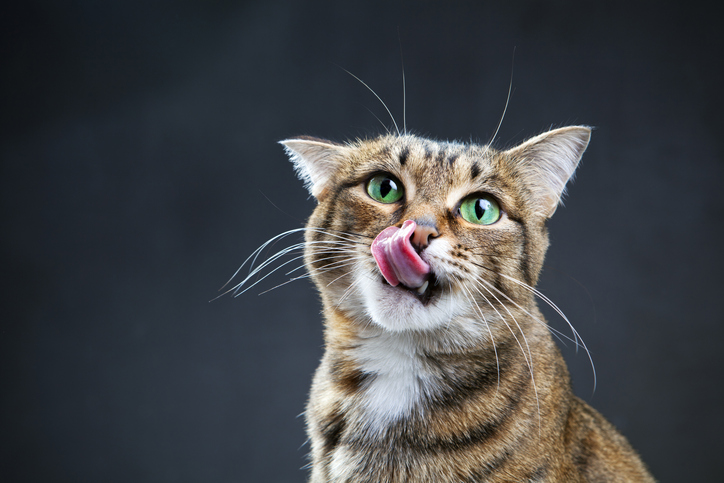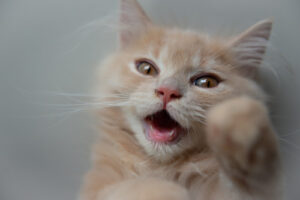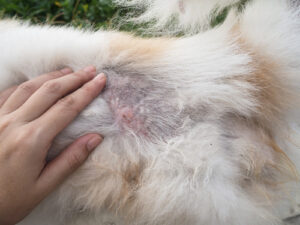There is no doubt that peanut butter is one of the world’s most popular and versatile spreads. The food is suitable for people of all ages and lifestyles, and it’s also great for dogs, who often have a hard time digesting food with bones or rawhide. Cats, however, are another matter.
The answer to the question “can cats eat peanut butter” really depends on the age of the cat and how much they weigh. If you have any concerns about feeding your cat peanut butter or any other food, it is recommended to consult with a veterinarian before doing so.
Keep reading to learn more about the associated benefits and risks of cats consuming peanut butter, as well as some alternative options.
What is Peanut Butter?
Peanut butter is made from ground peanuts and can be used in many different ways. For example, it can be eaten as a spread on toast, sandwiches, or crackers. Peanut butter is very nutritious and has many nutrients that are good for you but can often contain other ingredients, such as salt and sugar.
What are the Benefits of Feeding Cats Peanut Butter?
The answer to this question is not straightforward. Cats are obligate carnivores, meaning they need meat in their diet. Hence, it is not recommended to feed your cat peanuts or peanut butter as they are too high in fat and protein for a cat’s diet. Although there may be some benefits to feeding your cat peanut butter as a snack, there are also some risks to be aware of. However, some brands of peanut butter may contain sugar or other sweeteners which can cause weight gain or other health problems for your cat. In addition, peanut butter can be a choking hazard for cats if not given in moderation.
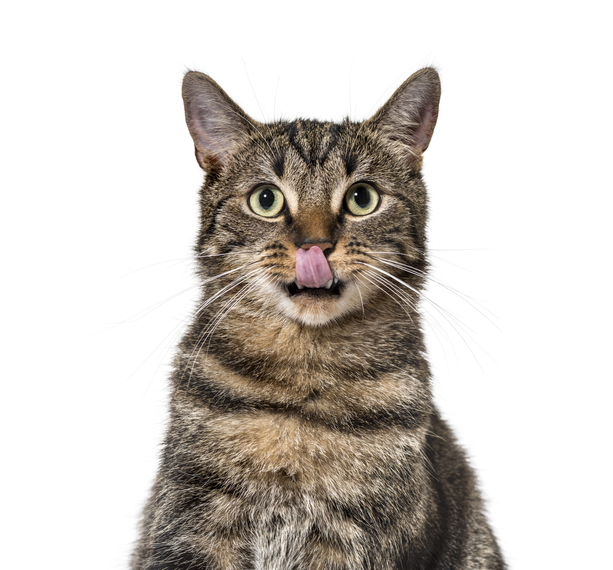
What are the Risks of Feeding Cats Peanut Butter?
Cats are often curious creatures, and they will go to great lengths to find out what’s in their environment. This includes investigating any food that’s left on the floor or table. If your cat has a taste for peanut butter, it’s a good idea to keep it out of reach. Cats can’t break down the enzyme inhibitors found in peanut butter, which can lead to an upset stomach and vomiting.
What Happens If a Cat Eats Peanut Butter?
A cat’s immune system is different from a human’s. Cats have a higher tolerance for certain allergens than humans do. For example, they can eat something with peanuts in it and not have an allergic reaction. But, there are some cats that are allergic to peanuts and if they eat peanut butter, they will have an allergic reaction.
If your cat has eaten peanut butter, it can take up to 24 hours for the reaction to show up in its system. If your cat has a severe allergy to peanuts, then it will show up sooner.
Help! My Cat Likes Peanut Butter!
Some cats are naturally drawn to the taste of peanut butter, and it can be difficult to stop them from eating it.
- The first step in stopping your cat from eating peanut butter is to ensure that there are no sources of the food in your home. This includes jars, containers, or any other food that has a strong smell. If you find any sources of this food, it should be thrown away immediately so that your cat cannot get to it.
- Another way to stop cats from eating peanut butter is by providing them with other foods they like such as tuna or chicken.
An Alternative or Two
Although some people think it is not safe for cats to eat, the right type of peanut butter can be given to a cat. Peanut butter is a source of protein and essential vitamins and minerals for cats. It is important to choose peanut butter that does not contain xylitol, which is toxic to cats. When feeding peanut butter to a cat, it is important to start with a small amount to see how the cat reacts.
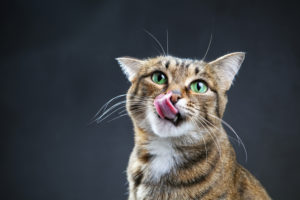
Plain Unsalted Peanut Butter
Animals that eat peanut butter include horses, hamsters, and cats. The best type of peanut butter for a cat is plain, unsalted peanut butter–in tiny amounts as a treat. If the cat has an allergy to peanuts, it is better to avoid them altogether.
Natural Peanut Butter Flavored Cat Treats
There are tons of great natural treats for cats, and some even have peanut butter flavor for those cats who can’t get enough of the taste. Natural cat treats are made to be cat safe and digestion-friendly and are best given in moderation.
Conclusion: Why You Shouldn’t Feed Your Cat Peanut Butter
Some cats may be allergic to peanut protein, while others simply don’t care for the taste. For those who love their furry friends, there are plenty of natural cat treats that could be substituted in place of peanut butter. You should also avoid feeding your cat nuts, which are high in fat and salt content and can cause digestive problems.
If you have any questions about your cat’s health, please call us at (303) 424-4439 or schedule an appointment with us online!

